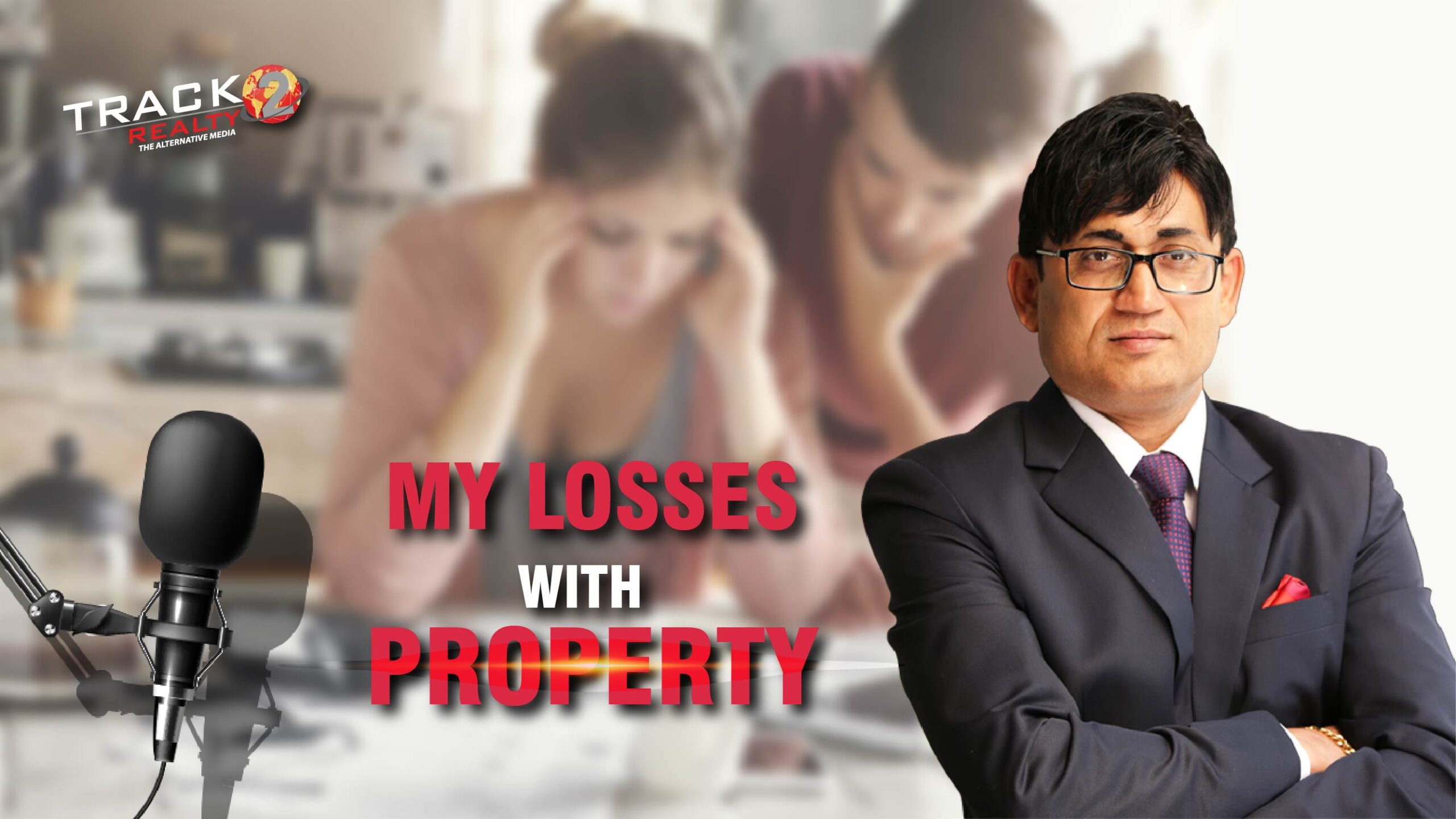The recent correction of Indian stock market has reignited the age-old debate of real estate versus stock market. In the last few weeks I am asked at various forum, it’s rather bombardment of arguments, why I don’t accept the reality of property market being a safer bet with lesser volatility. A little bit of correction in stock market makes every stakeholders & influencers of property cite it as to how property is the safest asset class. All that I can say is that I am amused with the logic, or rather lack of it.
I continue to believe that the believers of property as best asset class carry a perception bias. What is perception bias? Perception bias is a cognitive bias that occurs when we subconsciously draw conclusions based on what we expect to see or experience. Once we make an assumption, we tend to look for evidence that reinforces it, rather than being open-minded and objective about a given situation.
So, those who argument in favour of property use selective data to plead their case without looking at the world of finance & investment holistically. Just because there is a slight drop in the Sensex & Nifty, it doesn’t automatically elevate property market. But then these are the people who would also assume that when the stock market is at a high the wealth gets transferred to property market in due course of time. How could both the arguments be true? I often wonder.
I have a few questions to those who try to hard-sell real estate as the best & safest asset class:
Question #1: Do you check your property prices on a daily basis?
Question #2: Won’t the property also fetch loss in case of immediate or distress sale?
Question #3: Isn’t comparison of property versus stocks over a period of 5-10 years tilted in favour of stocks?
Question #4: Won’t the wrong property, like wrong selection of stocks, lead to wealth erosion?
The problem is that most of the Indians are conditioned to believe that financial asset is not an asset; it’s just a paper money with notional value. The fact is that any asset class carries only notional value till the time unrealized gains are liquidated to book profit.
When there is some stock market downtrend, we immediately sell the financial asset. And then we tend to believe that it was a risky investment. The fact of the matter is that real estate too is risky if you have to sell it. The property prices don’t appreciate instantly, and in case of selling it in the immediate future, there is loss of 6-7% Stamp Duty as well as bargain loss due to distress sale. And you never know the market conditions if you have to sell the property early. There is no Stop Loss in property market.
But while we generally have long-term vision with property, we tend to have short-term money mindset in financial market. And then we blame the market, and instead of blaming self.
Another argument in favour of property market is what if the choice of stock is not right? But then the same goes true with property purchase as well. If you buy a commercial property in a mall that turns out to be a deserted mall on completion, then the losses are even greater than stocks.
The way a sensible person won’t buy a wrong property, a sensible person won’t buy a speculative stock. But while we do all sort of due diligence with property, we seldom do a thorough analysis of a given stock before buying. How many of you evaluate the stock on the defined parameters of it being profit-making company; debt-equity ratio; and having economic moat? An economic moat is a metaphor that describes a company’s ability to maintain a competitive advantage over its competitors.
Most of the Indians just evaluate it on the basis of stock appreciating. They more often than not fall prey to market operators who artificially appreciate stock price to book profit. And the knowledge-less investor then blame the stock market.
Similarly, if a property investor fails to do his own due diligence, one tends to make losses. I know people who have been duped by the builder that they would be given 20% discount, if they invite more buyers. It’s like a chain of network marketing where your property is free if you bring 5 such gullible property buyers along with you. In the end, that property never gets delivered.
Due diligence is the key here. Buying under-valued property or buying under-valued stock or break-out stock needs equal level of due diligence and financial knowledge. Advantage with financial asset over property are many – Liquidity & part sale; mobility with financial asset and hassle-free investment. On the other hand, high maintenance & higher entry & exit load makes property least desirable asset class.
As far as ROI (Return on Investment) is concerned, there is an interesting comparison on social media about the property of film star Shahrukh Kahn. In 2001 Shahrukh Khan bought his Villa, Mannat, at a price of INR 13 crore. Today, the market price of that property is INR is 200 crore. That makes it a case of return of 12.62% CAGR returns. In stock, had one invested that amount with the then under-valued stock like Titan, then growing with 37.42% CAGR returns the amount would have been more than INR 19,000 crore. Ok, I do understand that finding a stock like Titan was jackpot. The safest bet is Nifty Bees that was at INR 10 in those days and is today at INR 261 at 15.24% CAGR returns. In Nifty Bees the said amount would have been INR 326 crore. And that is just the safest bet.
In a study about correction (2% or more) of Indian market over the last 17 years, it was found that out of the 4,500 trading days during the period only 140 days were witness to that sort of sharp correction. That is just about 3% of the total trading days.
So, the whole argument that stock is more risky and one should prefer property is flawed. At the end of the day, what matters is your reason of purchase and financial knowledge. And never forget the fact that the performance of the given property is more localized as compared to stocks with performance metrics being uniform across the geographies.
Ravi Sinha
X: RaviTrack2Media
Ravi Sinha is a journalist with over two decades of cross-discipline media exposure. He is the CEO of real estate thinktank group Track2Realty. He has been writing extensively on the real estate sector for more than a decade now. Evaluation of real estate brand performance is his core domain expertise and he has immense insight into consumers’ psychograph. He has conceptualised Track2Realty BrandXReport as India’s 1st & only objective & non-paid brand rating journal that is industry-accepted benchmark of brand equity & ranking of the Indian real estate companies.
Track2Realty is an independent media group managed by a consortium of journalists. Starting as the first e-newspaper in the Indian real estate sector in 2011, the group has today evolved as a think-tank on the sector with specialized research reports and rating & ranking. We are editorially independent and free from commercial bias and/or influenced by investors or shareholders. Our editorial team has no clash of interest in practicing high quality journalism that is free, frank & fearless.
Subscribe our YouTube Channel @ https://bit.ly/2tDugGl





